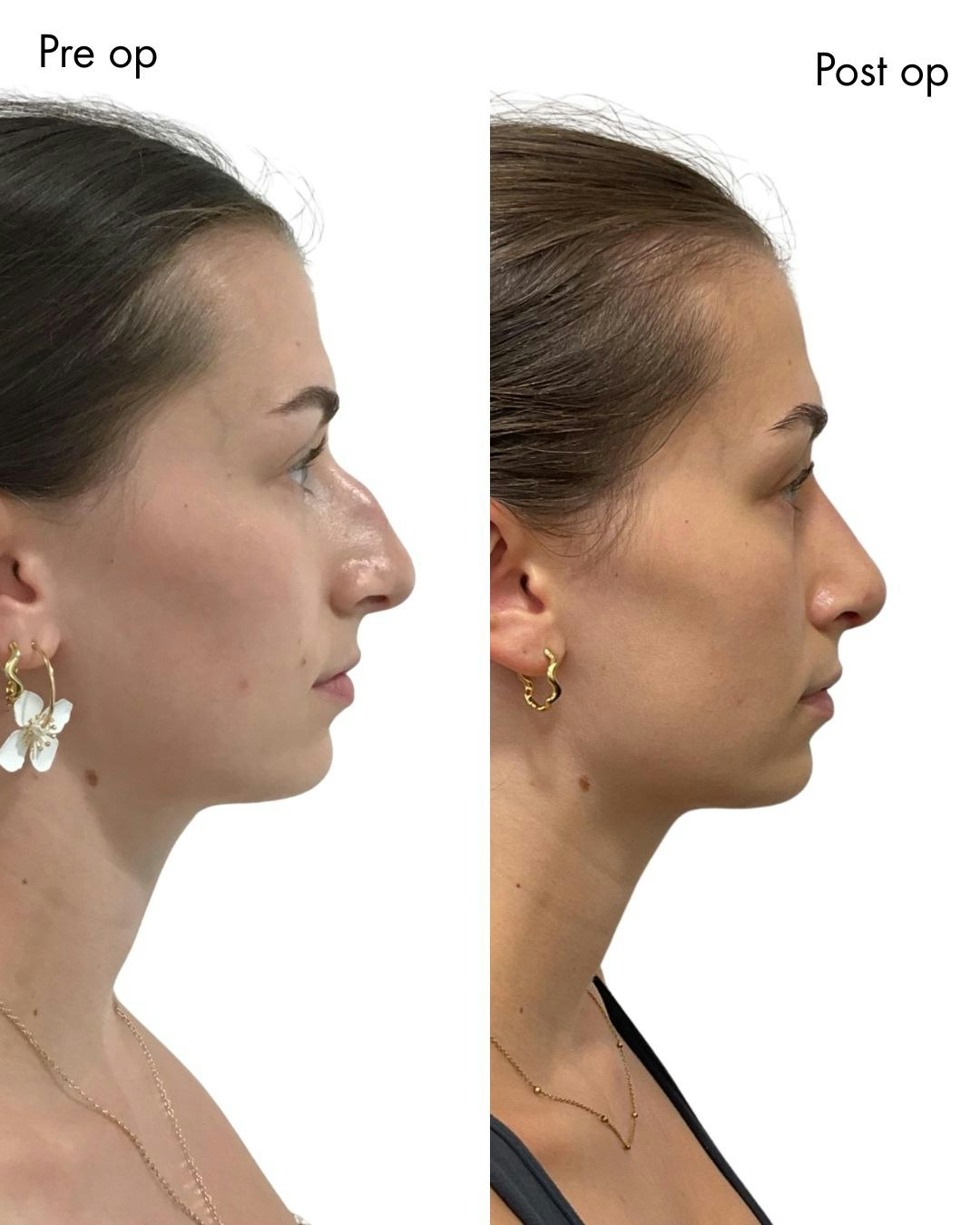We have created this helpful guide with information about some of the risks and complications associated with breast enlargements to help you make an informed choice about moving forward with a cosmetic surgery procedure. Knowing about the associated risks will also help you to detect and treat any problems early. Complications are rare with this procedure, however, sometimes complications can occur. In the unlikely event that they do, you can be reassured by MYA’s 3-year aftercare and revision policy, and access to out of hours telephone support 24-hours a day.
General Side Effects and Complications of Surgery and Anaesthesia
The following information is for your guidance and is not an exhaustive list. Specific concerns/issues will be discussed with you by your surgeon or anaesthetist. You will be provided with further procedural information inclusive of the risks and complications of breast augmentation surgery when you attend clinic. If you have any questions relating to anaesthesia, we recommend that you ask the anaesthetist at the hospital. You will be given an information leaflet in your pre-operative assessment which will detail the side effects of the anaesthetic.
Pain and discomfort
Pain is subjective and varies from person to person. You may feel sore along your breastbone, especially if the implant was placed behind the pectoral muscle. Moving your arms can be uncomfortable for 2 to 3 weeks. You will be provided with painkillers and instructions on your discharge from hospital.
DVT or PE (Deep Vein thrombosis or Pulmonary Embolism)
This is a rare but serious complication of surgery and anaesthesia. DVT is where a blood clot forms in the veins and this can typically be in the legs. Symptoms of DVT include; pain, swelling and tenderness in one of your legs (usually your calf), a heavy ache in the affected area, warm skin in the area of the clot, red skin, particularly at the back of your leg below the knee. DVT usually (although not always) affects one leg. The pain may be worse when you bend your foot upward towards your knee. The blood clot can travel through your bloodstream to your lungs, this is called a Pulmonary Embolism (PE). Symptoms of PE include; breathlessness which may come on gradually or suddenly, chest pain which may become worse when you breathe in, collapse or dizziness, coughing blood, fast heart rate/racing pulse/palpitations. Both DVT and pulmonary embolism require urgent investigation and treatment. Seek immediate medical attention if you experience any of these symptoms following your surgery.
To reduce the risk, you will be given compression socks to wear during and following surgery. You will be encouraged to mobilise following your surgery to help reduce the risk of a DVT or PE. If you take the combined oral contraceptive pill or oestrogen based medication, it is important that you inform your surgeon and clinic nurse so they can assess if you need to continue or alternatively stop taking the medication before and after surgery.
Haematoma and Seroma
A haematoma is where a collection of blood develops in the pocket where the implant is. You may need another operation to remove the blood. Some surgeons use drains during surgery and initially post-operatively which can help to reduce the chance of developing a haematoma. Symptoms include increase in breast size, hardness and pain. Seroma is a condition involving collection of clear tissue fluid found around the implant that may need to be drained, although it can be absorbed naturally by your body. If the seroma becomes large and keeps coming back, you may need additional surgery to remove the fluid. Symptoms of a seroma include increase in breast size, hardness, pain, redness and heat.
Stretch Marks
Stretch marks can possibly develop and are entirely natural as the body changes. These are more common if you are going for a very large implant and can also depend on your skin quality.
Scarring of your skin
Incisions are commonly made in the fold below the breast (inframammary incision), the resulting scars usually settle with time however this can take up to 18 months to fully heal. Some patients are more prone than others to developing raised scarring due to excess collagen being produced at the site of a wound. Follow the instructions your surgeon and nurse give you about how to care for your wounds after surgery.
Infection
Infections are rare and can occur in less than 1% of breast augmentation procedures at MYA. Wound healing varies from patient to patient, and even from one part of the body to another and is a gradual process. Smoking, nicotine patches, use of e-cigarettes for the period leading up to surgery, and afterwards, can seriously hinder the healing process and increase the risk of infection. A surgical wound infection can develop at any time from two to three days after surgery until the wound has healed. Very occasionally, an infection can occur several months after an operation. Symptoms of infection include the breasts feeling swollen and tender, there may be wound discharge and you may feel unwell with a raised temperature. Infections can be treated with antibiotics but is not always necessary. Your Doctor will assess and decide if treatment is required. If you experience any symptoms of infection contact MYA via the clinic or the 24 hours out of hours support line.
Change in sensation to breasts
Few patients report increased or decreased sensitivity in the nipples and surrounding breast tissues, which usually settles down in a few weeks. However, this can last longer and, in some cases, may be permanent which may affect breastfeeding in the future. You may feel mild tingles to a sudden sharp pain in your breasts, which is normal following this procedure due to nerve interference, but this will subside over time. You may even hear air “gurgles” or “popping” sounds within the first weeks, again this is totally normal
Rupture of the breast implant
A lower risk of complication is implant rupture. Breast Implants are made with a robust silicone shell however these can potentially develop a tear, hole or leak this is known as rupture or gel bleed. This is often silent (meaning neither you nor your doctor will know you have a rupture). Causes: normal aging of the implant, trauma to the breast e.g. car accident, a fall, a needle insertion during a biopsy, or other factors. The health consequences of a ruptured silicone gel-filled breast implant have not been fully established. Screenings such as MRI, or ultrasound are recommended after initial implant surgery to assist in detecting implant rupture. At any time after surgery if you notice any changes in your breast volume, shape or position, or any lumps or swelling of the breast then contact your local clinic for advice and guidance. MYA patients are covered for 3 years by the aftercare policy and will also have a manufacturer guarantee for their implants.
Capsular Contracture
Fibrous scar tissue naturally forms around the breast implant, creating a tissue capsule. The tissue capsule is usually soft and helps to keep the implant in place. In some women, the scar tissue / capsule around the implant becomes firm or hard and tightens. This is known as capsular
contracture; depending on the severity of the hardening it can cause mild to chronic pain and distortion in the shape and position of the breast. Patients with moderate to excessive firmness may require additional surgery after consulting their Surgeon.
BIA-ALCL
Anaplastic Large Cell Lymphoma (ALCL) is a rare type of non-Hodgkin’s lymphoma of which there are several subtypes. In 2016 the World Health Organisation (WHO) defined a specific provisional type of ALCL called Breast Implant-Associated ALCL (BIA-ALCL). The most up to date figures for the UK indicate an estimated level of risk to patients is around 1 in 28,000. Current evidence indicates there is an association between breast implants and BIA-ALCL, but this seems to involve many factors. Figures shown by the clinical data suggests that there may be a relationship of the breast implants to ALCL. In the UK a very low number of cases of ALCL have been reported in women who have had breast implants. Since publishing MDAs in 2011 and 2014, encouraging healthcare professionals to report cases of anaplastic large cell lymphoma (ALCL) in patients with breast implants, MHRA has received 48 reports of BIA-ALCL in the UK, 40 of which meet the WHO diagnostic criteria for BIAALCL1. If diagnosed early, BIA-ALCL can be successfully treated, usually with surgery alone, and there is no indication for any routine action in the form of explantation or regular imaging. But the increase in risk is small and ALCL in this area is not as serious as it is when it happens elsewhere in your body.
Symptoms of ALCL:
‘Late’ seroma (a collection of fluid) forming around the breast implant, most cases have happened years after surgery
The fluid collection often results in a relatively rapid but painless increase in size of the affected breast, in some cases it can affect both breasts
A lump develops next to the implant, or within the tough fibrous tissue building up around the implant (known as capsular contracture).
You should continue to check your breasts and axillae for any changes such as lumps, swellings or distortions, and contact your operating surgeon or GP if you have any concerns. Patient safety has been and will always be MYA’s first priority and MYA will continue to watch the results of any ongoing enquiries into the association between ALCL and breast implants.
Other Helpful Information
Breast implant registry
In order to monitor and improve patient safety, a breast and cosmetic implant registry (BCIR) has been developed recording the implants that have been used for patients, organizations and the surgeons that have carried out the procedures. The main aim of the registry is to be able to trace and inform affected patients in the unlikely event of a recall of a failed implant. The registry will also allow the identification of possible trends and complications relating to specific implants. The BCIR is being managed by NHS digital, the trusted national provider of high-quality information, data and IT systems for health and social care. Your personal information will be retained to allow you to be contacted in the event of a future implant recall. No aspect of the information will be sold or made available for commercial companies for other uses.
The Future
Breast implants do not have a lifetime guarantee and are likely to need replacing after 10 – 15 years. It is likely that your breasts will change in shape and position, in part this is associated with the weight of the implants. However, it may be that you become pregnant after having surgery, lose or gain weight and the effects of ageing will also cause changes in any woman and may require further surgery in the future to maintain the aesthetic appearance of the breasts.









